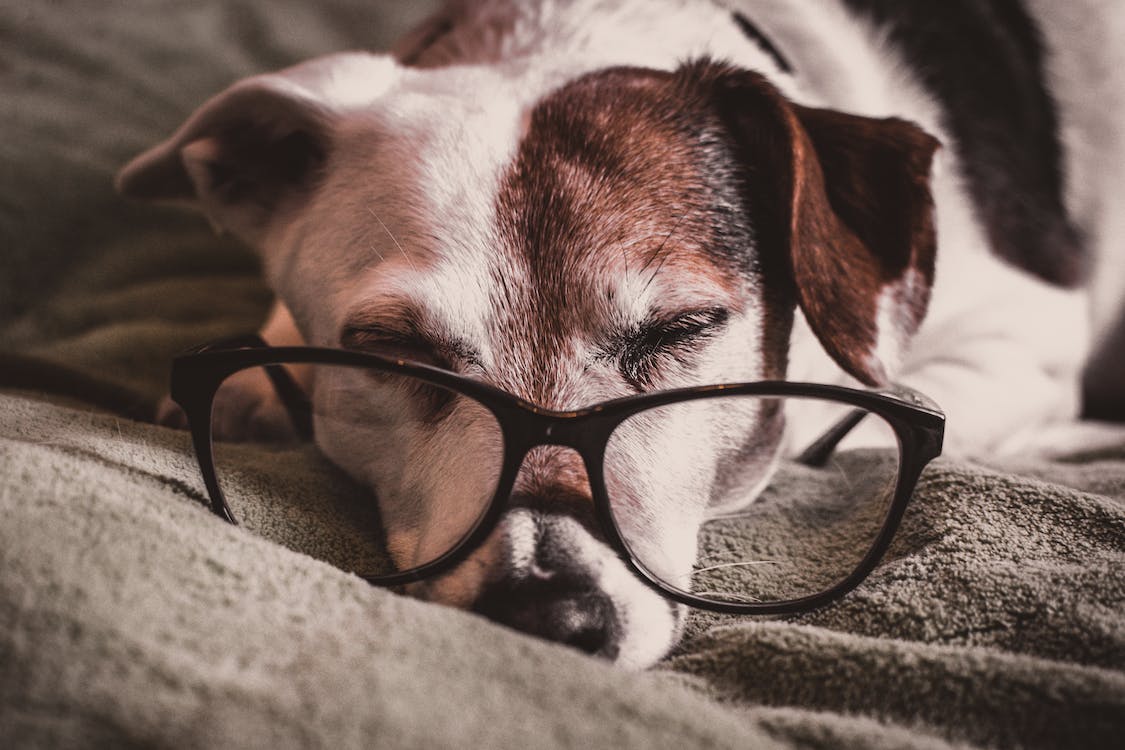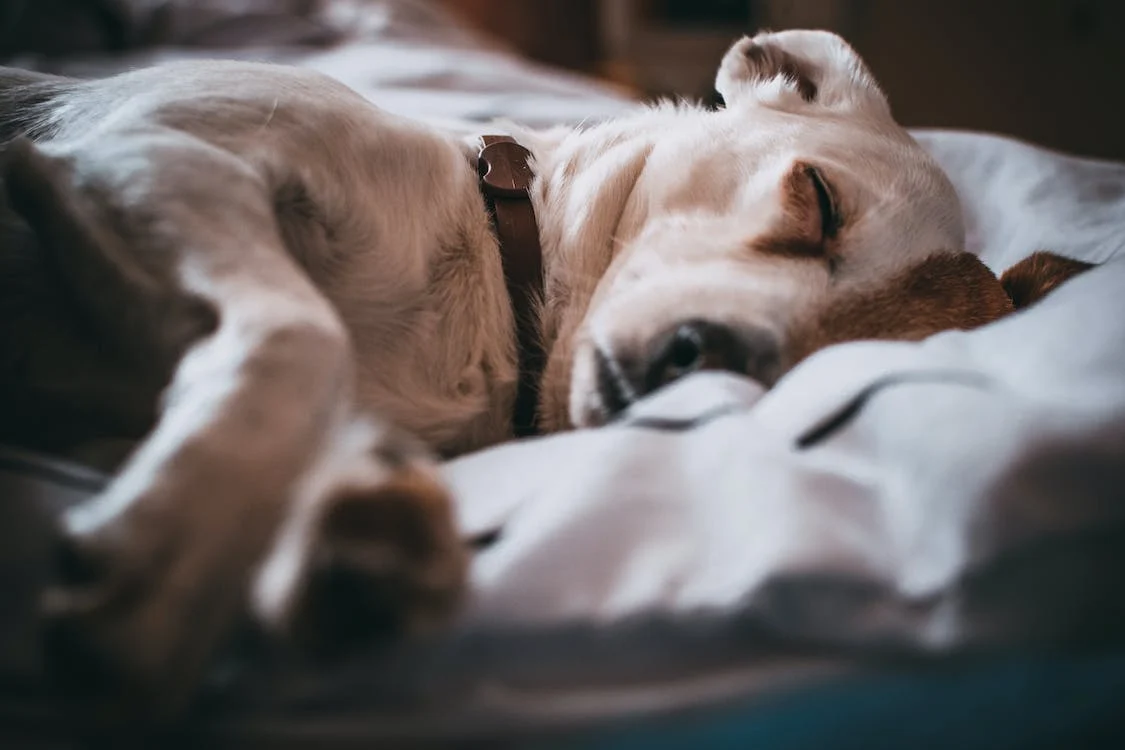You tiptoe around the house, wary of disturbing your napping dog. Yet despite your stealth, he still startles awake at the slightest noise or movement. You’re left wondering, why do dogs wake up so easily when humans can sleep through blaring alarms? Understanding dogs’ evolutionary history, protective instincts, and sleep physiology provides insight into this sensitive slumber.
Survival Instincts Keep Dogs Alert
Dogs developed some key traits over centuries alongside humans that primed them to wake readily:
Light Sleepers for Protection – As guard dogs of people and livestock, instant wakefulness was vital to alert their tribe of approaching threats. Those who slept too deeply failed as lookouts.
Attuned Senses – Canine senses of smell, sight, and particularly hearing are all acute compared to humans. Even subtle cues easily rouse them.
Staying Aware for Protection – Dogs remain semi-alert even when appearing asleep to react swiftly. Their natural vigilance aims to keep their loved ones safe.
Wariness of Unknown Sounds – Rare or strange noises prompt investigation to determine if a potential threat lurks. Better safe than sorry.
Companionship Focus – Bonded dogs tune into their human’s or pack’s activities and may wake to check on them if restless.
Thousands of years selecting protective, companionable traits ensure today’s dogs have hypersensitive snooze triggers.

How Dogs Sleep Compared to Humans
Additionally, differences in human versus canine sleep architecture help explain dogs’ light slumber:
Shorter Cycles – Dog sleep-wake cycles last just 10 minutes compared to humans’ 90-minute cycles. This allows faster rousing.
More Transitions – Dogs experience far more transitions between light non-REM and deeper REM sleep each day. People spend more time in elongated deep sleep stages.
Naps vs Night Sleep – Dogs naturally take short naps throughout the day totaling some 14 hours rather than consolidated overnight sleep. Their frequent wake-ups seem normal to them.
Physical Sleep Style – Dogs sleep curled up with eyes partly open and ears alert rather than stretched out stiffly like humans. This allows instant response.
Senior Sleep Changes – With cognitive dysfunction, older dogs wake more as nighttime sleep fragmentation increases. Any disruption seems magnified.
In summary, dogs’ sleep structure supports readily surfacing out of slumber to address anything amiss. To them, waking is typical.

Everyday Factors That Rouse Dogs Easily
In daily life, several common factors explain dogs transitioning out of sleep so readily:
Noise – With sensitive, upright ear structure and neurological wiring, most sounds grab dogs’ attention. Even slight bumps or distant doors rouse them.
Movement – Their predatory vision spots even subtle motions quickly. A nearby person shifting position or car passing outside can wake a dog.
Scents – Smells stimulate the olfactory nerves that have direct brain pathway connections, allowing any new odor to stir them.
Touch – A light stroke or accidental kick is quickly felt due to a thin fur coat. They wake to reposition away or lean into pets.
Caretaking – Most dogs still retain intense focus on their human’s location and activities. Our actions pique their interest.
Biorhythms – Dogs are crepuscular meaning dawn and dusk wakefulness is ingrained. The slightest sun cues trigger alertness.
From sights to sounds to scents, dogs have environmental awareness even during deep sleep.
Why Some Dogs Seem Impossible to Wake Up
For dogs that seem oddly hard to rouse:
- Very young puppies need copious sleep for brain development. Their immature sensory systems allow deeper slumber.
- High arousal or vigorous exercise depletes dogs inducing prolonged, heavy sleeping. Their tired brain delays sensory processing.
- Some medication side effects include lethargy and sedation inhibiting prompt waking.
- Hearing loss in senior dogs blunts auditory stimuli that normally trigger waking.
- Underlying illness, hormonal disorders, and neurological issues can all heavily sedate dogs. See your vet.
So while most healthy adult dogs have hair-trigger waking reflexes, exceptions exist when very young, old, sick, or exhausted.

Should I Be Concerned About My Dog’s Light Sleep?
Easy waking is normal for most dogs and not concerning. However, contact your vet if:
- Your senior dog now sleeps excessively heavily all the time
- Your dog seems abnormally lethargic and slow to wake frequently
- Insomnia or signs of pain keep your dog from sleeping soundly
- Medications or supplements may overly sedate your dog
While vigilant sleep patterns developed beneficially, rule out medical issues causing disrupted circadian rhythms or excessive drowsiness. Most dogs’ sleep cycles are simply wired to incorporate awareness.
Conclusion
Given their heritage and physiology as alert pack animals, dogs naturally sleep lightly and transition rapidly out of slumber to react to stimuli. Survival once relied on dogs readily waking to warn of approaching threats or predators. While now companion pets, those ingrained traits persist allowing dogs to remain attuned to their surroundings even when sleeping. Their prompt arousal is merely responsiveness in action – all the better to protect you!

